
How I Stopped Being Lazy: The Honest, No-bullshit Way
465248 views

First things first: do you think you are a lazy person?
If the answer is yes, then that is probably a lie your crazy brain is telling you, and you should stop listening to it.
If the answer is no, then that’s great! We believe in you and all of your future goals.
But if, like so many of us, you still find yourself delaying work instead of getting stuff done (or not doing things at all), then keep reading: I’m going to tell you what “laziness” really means, and how you can overcome it.
How do I know anything about this? Well, my name is Anna, and I’ve been there before.
When I started my career as a photographer, I was so excited. But after a while, I started putting off some of the most important tasks — like completing my projects, posting new photos on my Instagram, or writing blog posts.
I was always so hard on myself for being lazy. I just couldn’t get anything done, and I’d beat myself up about it.
Then one day, I realized “Wait a second… I’m not lazy. I’m actually super ambitious and have been working my whole life toward some pretty lofty goals. So why can’t I bring myself to do the most basic tasks?”
Can you relate to this? If so, you must be wondering why we put things off and how to stop being lazy once and for all.
But what if I told you that you're not lazy?
In fact, what if I told you that it’s not your fault at all?
You’ve probably been called lazy at some point. Maybe you’ve even called yourself that. But here’s the thing… There is a huge myth around laziness that most people believe in. You’re not a monster or a failure or terrible to work with or doomed to be mediocre forever. You’re just someone who needs help with PROCRASTINATION.
When you think of the word lazy, what do you see? Do you see yourself stretched out on a chair, not bothering to change your clothes or take a shower? Do you see yourself binge-watching Netflix, ignoring all responsibilities and obligations? Maybe burning through a whole bag of chips while texting your friends?
This is not laziness. This is procrastination, and it’s one of the most harmful habits we can have. It’s one of the most popular habits, too—studies estimate that nearly 20% of adults are CHRONIC procrastinators. There are probably many more who don’t realize they fall into this group.
And it’s not just about putting things off for later; it’s about doing something else instead of the thing you should be doing. If that definition sounds like yours, chances are you’re a procrastinator.
We don't procrastinate because we're lazy.

Procrastination is an act of avoidance, not laziness. If you are procrastinating, you’re probably avoiding something that you don’t want to do. Maybe it’s a task itself or maybe it’s a deeper problem.
We usually procrastinate because we associate an activity with negative feelings like pain or frustration instead of with positive feelings like reward or accomplishment.
In other words, it’s more about psychology than about time or self management techniques. And that’s good news! Because as soon as you understand the root of your procrastination problem, you can start working on it and take steps toward being more productive.
That’s why I decided to find a really good therapist who could help me find a way out of the neverending cycle of my procrastination. Here’s what I’ve learned from her:
Figuring out the exact reasons behind procrastination.
If you’re living with procrastination, you might feel like it’s your fault and you’re just lazy. You might feel like there’s nothing you can do about it—but that’s not the case. There are steps you can take to stop avoiding what you need to do (or what you want to do) and start doing the things you really want to do.
The point is, it’s not your fault that you feel this way. Procrastination is a symptom of an underlying issue, so instead of trying to solve it directly (and blaming yourself for failing), try tackling the root cause instead.
Procrastination can happen when there is something we want to get done but we don’t feel like doing it, when it seems impossible, when we’re afraid of failure, when we’re overwhelmed with options, or just because we’re tired and don’t feel like doing anything else right now.
So the first step towards beating procrastination is figuring out why we do it.
Think about it… Is it because the task is too big or scary? Is it because you’re just bored and just don’t feel like doing it? Each of the reasons will have different solutions.
If the task seems big and overwhelming, break down the steps into smaller parts that are manageable and achievable. Tackle each one at a time until you’ve completed the whole thing. Once you see progress, you’ll be more motivated to keep going.
If your boredom is keeping you from getting started, try changing up your routine. Do something else first, but consciously! Make a conscious decision of taking a break instead of unconsciously procrastinating.
Then get back to the task and you’ll find it significantly easier to complete.
In my case, I discovered that I was procrastinating because I was so afraid of failure…
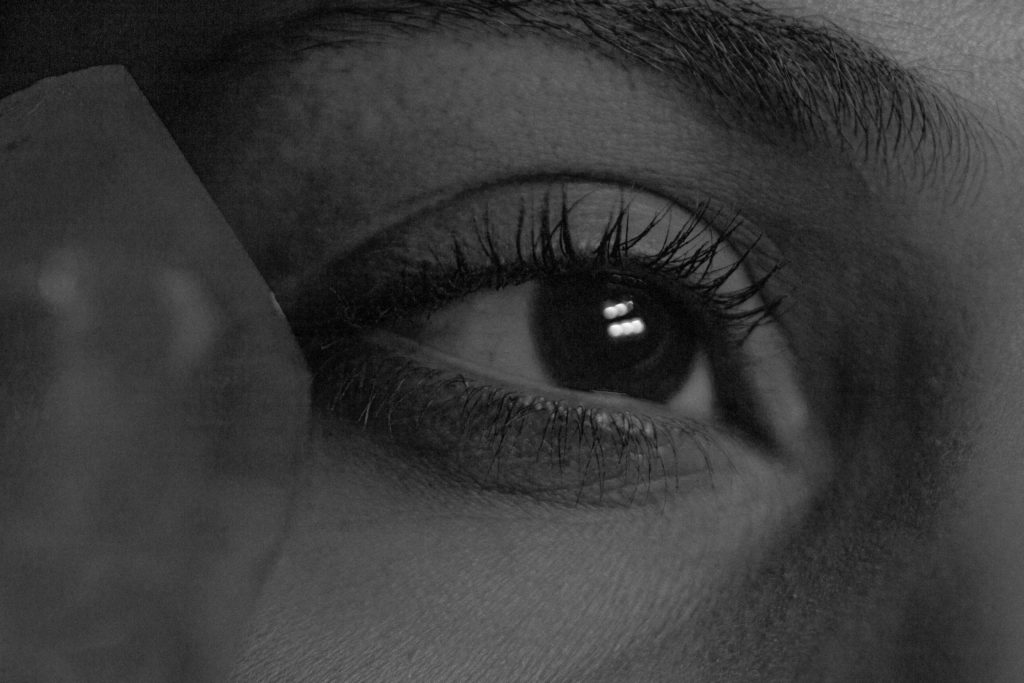
Turns out procrastination is just a coping mechanism for an inability to manage stress or deal with anxiety. My anxiety was coming from the thought that I was just an imposter – not a professional photographer.
I was struggling with thoughts like “What if I will never become a successful photographer” “What if I don’t have a talent for it”…
So even if I perceived myself as a hardworking person, there was no point in trying so hard because “I wasn’t just good enough”…
And that’s why every time I wanted to finish a project or showcase my photos on Instagram, something would stop me.
It was like a glitch, my mind couldn’t process my fears and the way I perceived myself as an artist.
Honestly, my therapist seemed to have a hard time helping me change the way I dealt with procrastination.
So I started seeking solutions on my own, and what I discovered was surprisingly amazing.
Six months ago, I came across a website with a quick quiz that you can fill out online in just a few minutes, where you answer a handful of questions about yourself and your goals.
Based on the answers, they sent me a personalized plan that claimed it would allow me to overcome procrastination and crush my set goals with tons of focus, energy, and willpower.
To be honest, I was super-skeptical, as nothing else had worked before. But I told myself I had to give it a try anyway.
I was even more curious when I saw the plan as it was designed for ME specifically—it took into account my habits and needs and crafted an action plan based on that information.
And it worked wonders for me!
So, what changed?
The most important thing that happened is that I stopped focusing so much on the end game — like being a famous photographer or having thousands of followers on Instagram — and started focusing on what matters most: the process of becoming a professional photographer.
This changed everything for me. Now instead of thinking about how great it would be to become famous someday, I focus on what matters most: the process of becoming a professional photographer.
By focusing on the process instead of the end goal, I’ve been able to achieve some big milestones in my photography career, without feeding my fears and worries about becoming successful.
And to think, it all started with a simple quiz!
Click below to take the Virtue Map initial quiz, and your custom-designed plan will be ready in a matter of minutes.
After that, it’s only a matter of choosing to give it a whirl.
After all, if you’re in a situation like mine, there’s so much to gain and so little to lose by trying.
Best of luck on your journey!
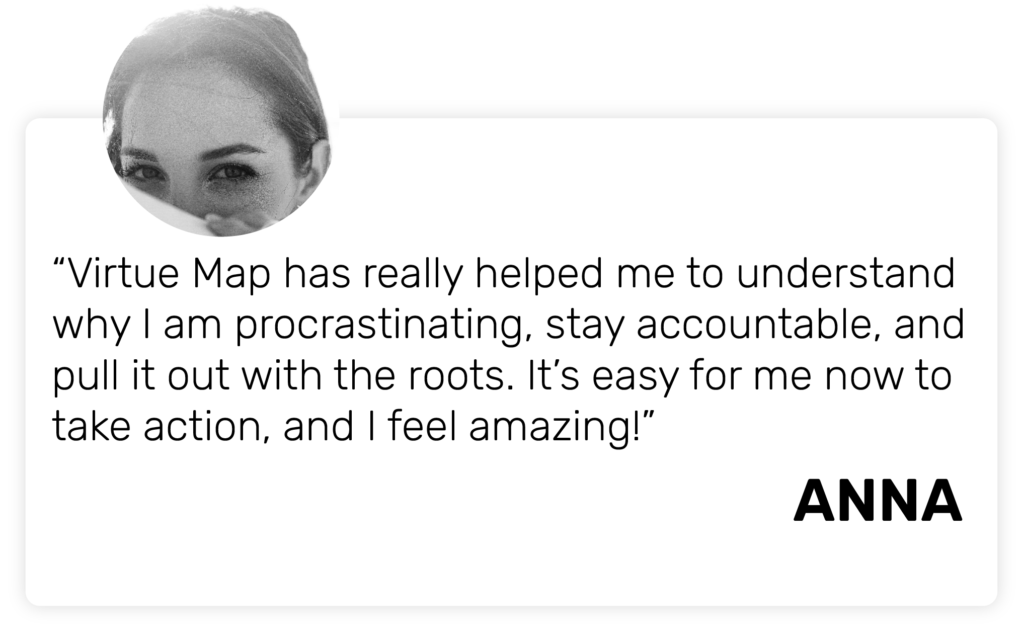
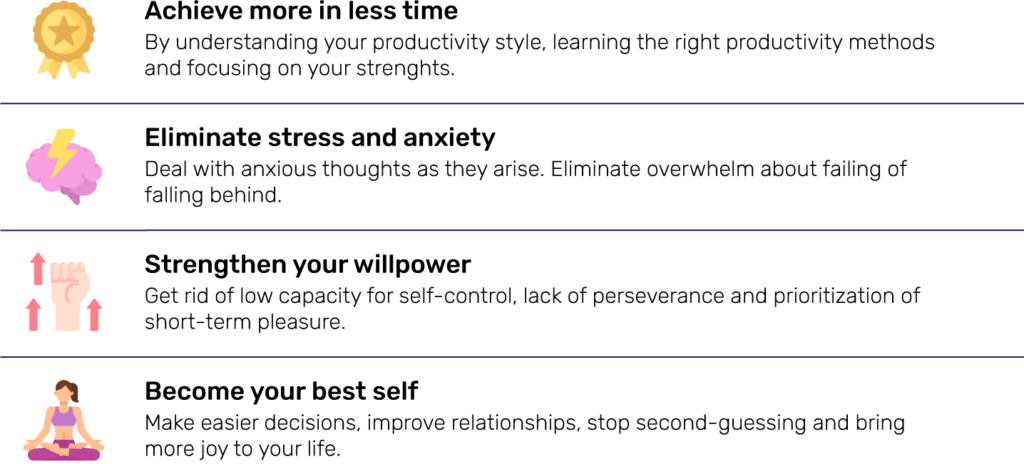
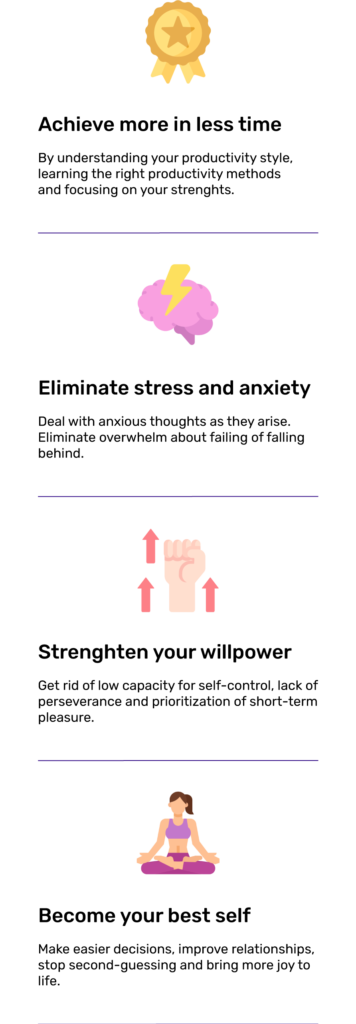
Loved by thousands.
The most popular personalized productivity and motivation tool. Over 154,200 plans ordered!

4.7/5
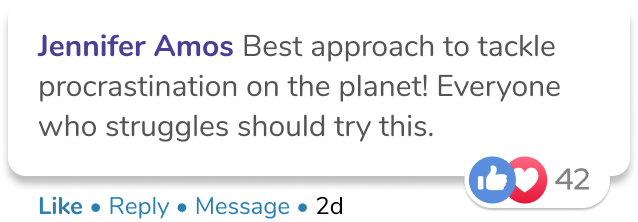
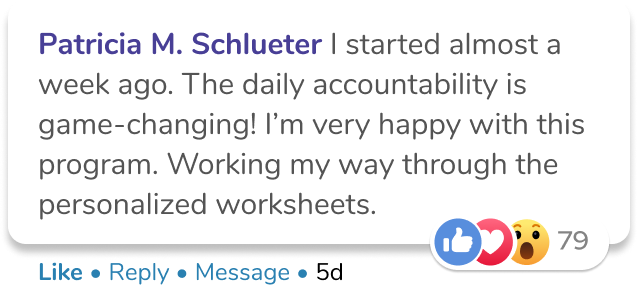
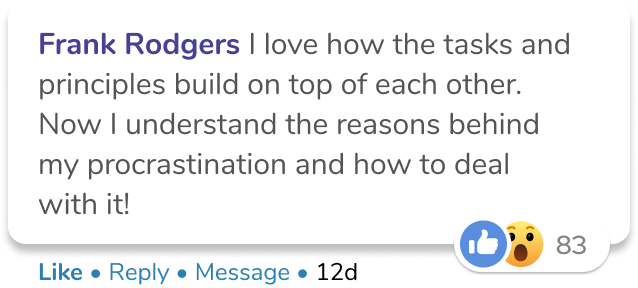
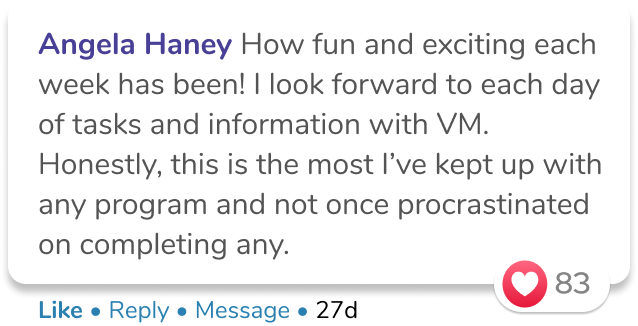
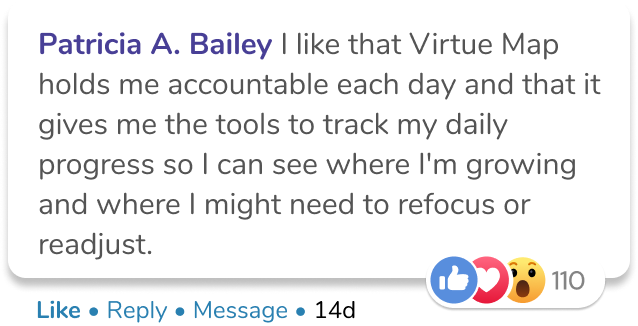
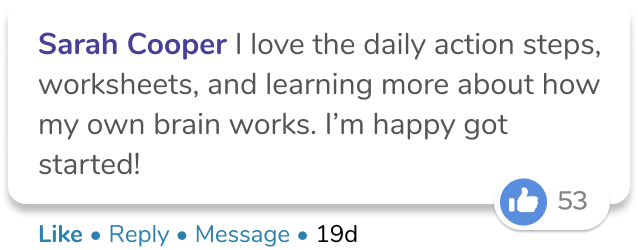
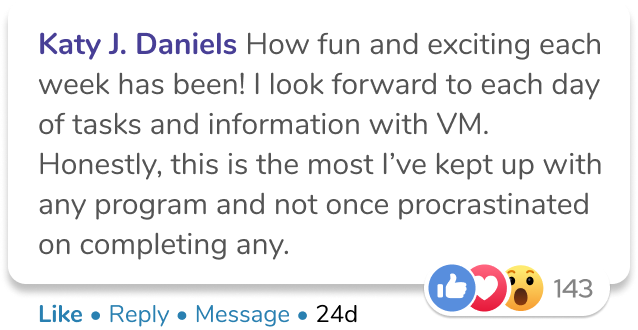
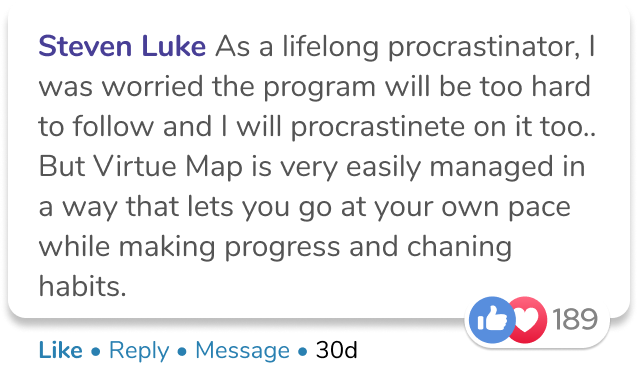

Copyright © 2022 Virtue Map. All rights reserved.
Virtue Map does not provide medical advice, diagnosis or treatment.
